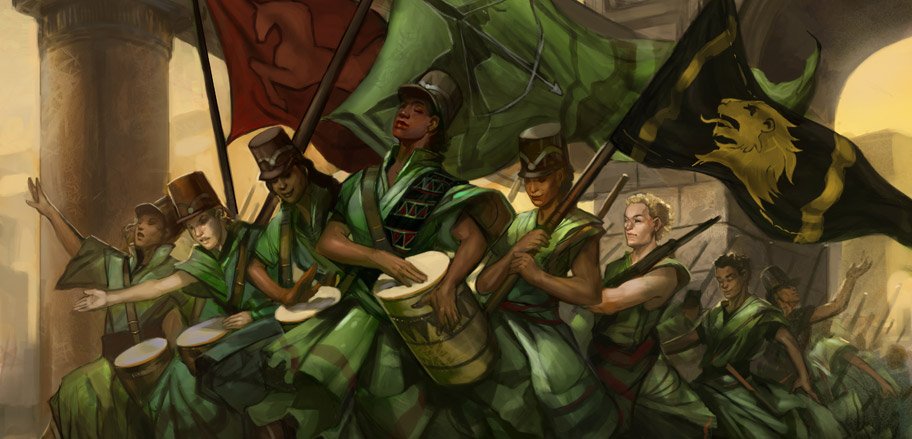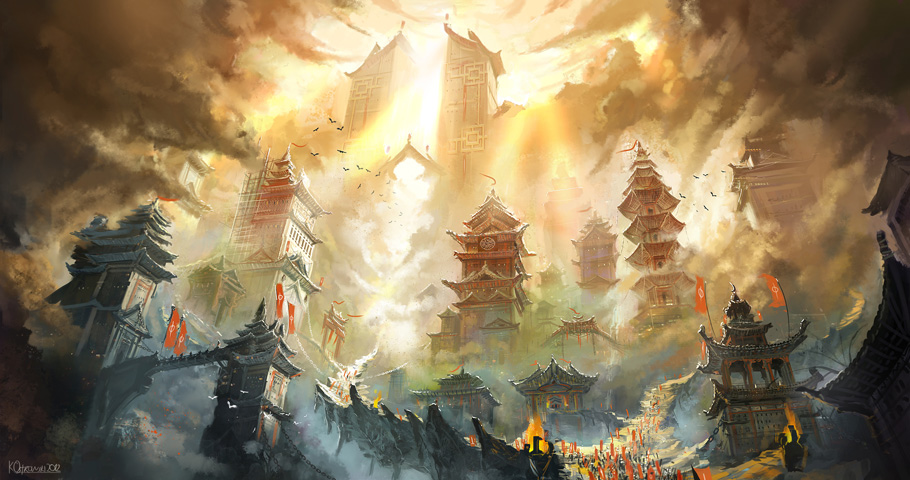Kate Elliott’s fiction first came to my attention in the mid-’90s. In the age before the rise of massive social media, I discovered authors through publications like Locus, and through things like award nomination lists. When King’s Dragon showed up on the Nebula shortlist for novels published in 1997 (a ballot that also coincidentally included an unassuming novel titled by a chap named Martin), I was excited to try a new author, and one tackling epic fantasy at that! I was pleased to find that King’s Dragon offered deep and intricate worldbuilding, strong female characters, perspectives on issues and facets of epic fantasy worlds that don’t always get much play, and a willingness to go dark when necessary. This was definitely something different than the epic fantasy of the ’80s I devoured as a teenager. I was hooked on Kate’s work. Hard.
I started reading backward into her œuvre, and then forward ever since.
Though also an author of several science fiction novels (Jaran, for instance, might be considered as Genghis Khan meets Jane Austen in space!), Elliott is best known for being one of the cornerstones of epic fantasy writing starting in the mid 90s and continuing strongly to this day. While many of the innovations and style of Elliott’s rising carries through all of her work, the series’ themselves are individual and distinct in manner, matter, and tone. There is a Kate Elliott fantasy series for nearly every taste of reader. Read More »
You can hear a distant thunder of hoofbeats, steadily growing louder as it approaches. It is a stratum of fantasy that looks beyond the boundary.
You can hear a distant thunder of hoofbeats, steadily growing louder as it approaches. It is a stratum of secondary world fantasy that looks beyond the boundary, the Great Wall of Europe. Secondary world fantasy that is inspired by Byzantium and the Silk Road, all the way to the western borders of China. Characters, landscapes, cultural forms derived from the Abbasid Caliphate, the Taklamakan Desert, and the Empires of Southeast Asia much more than Lancashire.
Thanks to the rising popularity of fantasy fiction, riding, in part, on the wave of Game of Thrones‘ massive success, many of science fiction and fantasy’s old paradigms and forms of have gotten a new look by virtue of new and diverse styles and varieties of stories, new and formerly inhibited voices (primarily women, genderqueer, and minorities), and new or formerly under-utilized wellsprings of inspiration. Elizabeth Bear, one of the many authors at the center of this paradigm shift, calls this “Rainbow SF.” As Science fiction readies its generation ship to move beyond the white-heteronormative-males-conquer-the-galaxy pastiche, popular fantasy is beginning to look beyond the faux-medieval western European that remained so popular throughout the genre’s formative decades. And this doesn’t even include the rise of World SF, as fiction from markets and voices beyond North America and England begin to be heard in the field.
I call such books “Silk Road Fantasy.” Read More »


